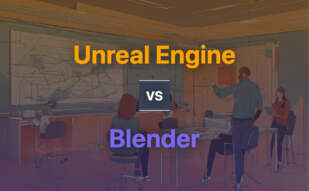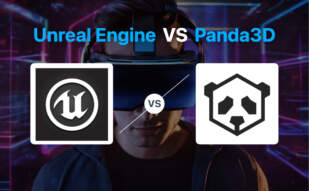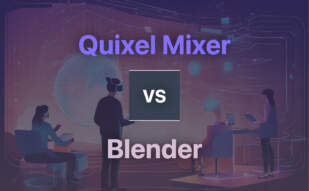For developers targeting rich interactive applications, Unreal Engine, with its comprehensive game development tools and extensive VR support, is ideal. Beginners or those focusing on 3D modelling, meanwhile, will appreciate the user-friendly, free, open-source Blender with robust 3D creation suite.
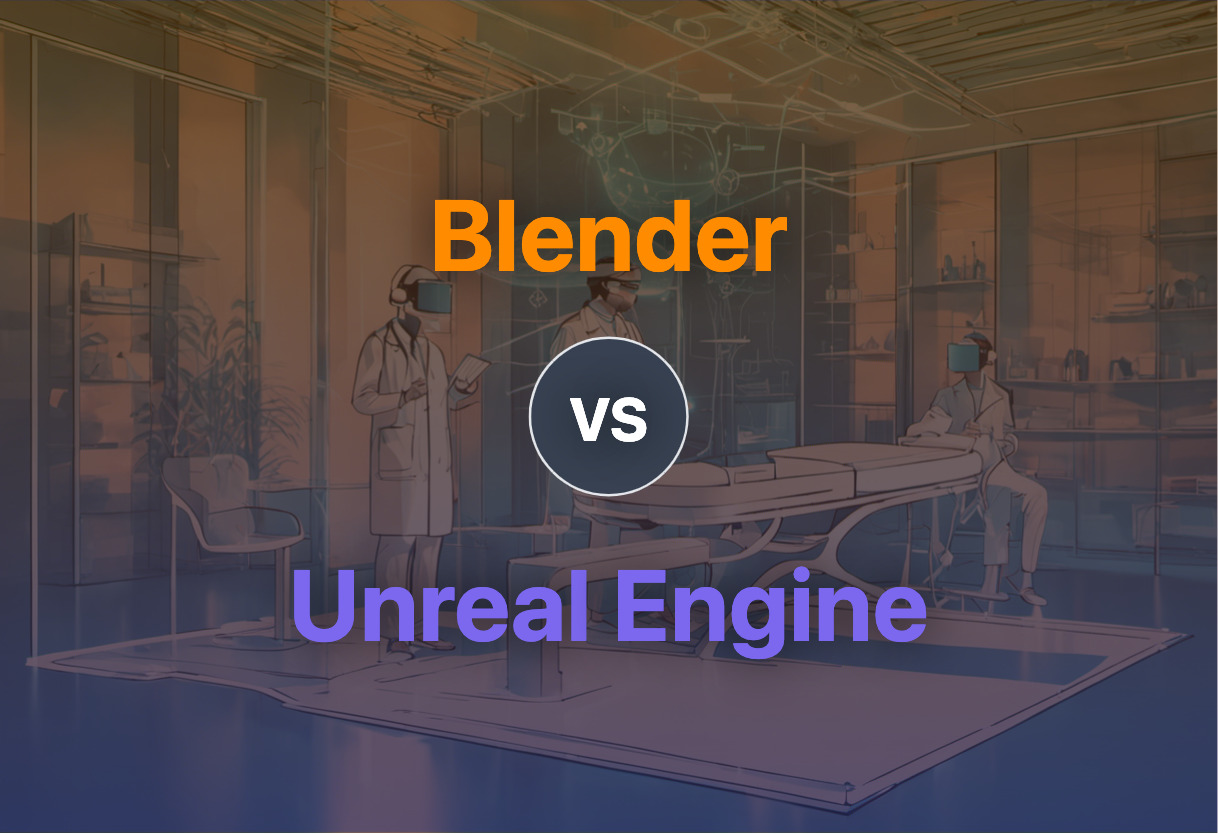
Key Differences Between Blender and Unreal Engine
- Coding language: Blender uses C, C++, and Python, while Unreal Engine is written in C++.
- Cost: Blender is free and open-source; Unreal Engine is free with a 5% royalty charge on revenues over USD1 million.
- VR support: Blender has limited VR capabilities, Unreal Engine provides extensive VR platform support.
- 3D Modelling: Blender focuses heavily on 3D modeling, Unreal Engine’s strength lies in game development.
- Community: Blender has a community-driven development; Unreal Engine is developed by Epic Games, albeit with community inputs.
| Comparison | Blender | Unreal Engine |
|---|---|---|
| Initial Release | January 2, 1994 | 1998 |
| Type | 3D computer graphics tool set | 3D computer graphics game engine |
| Cost Model | Free and open-source | Royalty model, 5% for revenues over $1M |
| Written In | C, C++, Python | C++ |
| Main Usage | Animated films, visual effects, art, 3D models, motion graphics, VR | Games, film, television, VR |
| OS Support | Linux, macOS, Windows, BSD, Haiku | Desktop, Mobile, Console, VR platforms |
| Extras | 36 supported languages, community development, freelancer participation | 88% revenue share for marketplace sellers |
What Is Blender and Who’s It For?
Blender is a robust 3D computer graphics toolset developed by the Dutch animation studio NeoGeo, unveiled in 1994. It provides an end-to-end pipeline for creating animated films, visual effects, 3D applications, and virtual reality. Free and open-source, Blender is the ideal tool for artists, designers, and hobbyists who wish to delve into 3D modeling, animation, and rendering. With extensive features and support across varying operating systems, it’s ideal for both individual artists and large animation houses.

Pros of Blender
- Feature-rich offering 3D modelling, animation, rendering, and more
- Free and open-source software
- Supported by numerous 3D file formats for import/export
Cons of Blender
- High learning curve for beginners
- Blender Game Engine deprecated in release 2.8
- Some features removed in latest updates, potentially hindering workflow
What Is Unreal Engine and Who’s It For?
Unreal Engine (UE), developed by Epic Games, is a far-reaching 3D computer graphics game engine first showcased in 1998. Originally intended for first-person shooters on PC, it has evolved to support a range of game genres, industries including film and television, and various platforms. UE attracts game developers who desire advanced graphics capabilities, filmmakers looking for real-time visualization, and educators seeking an engaging platform to teach coding and 3D design. The latest release, Unreal Engine 5, came on the scene in April 2022.
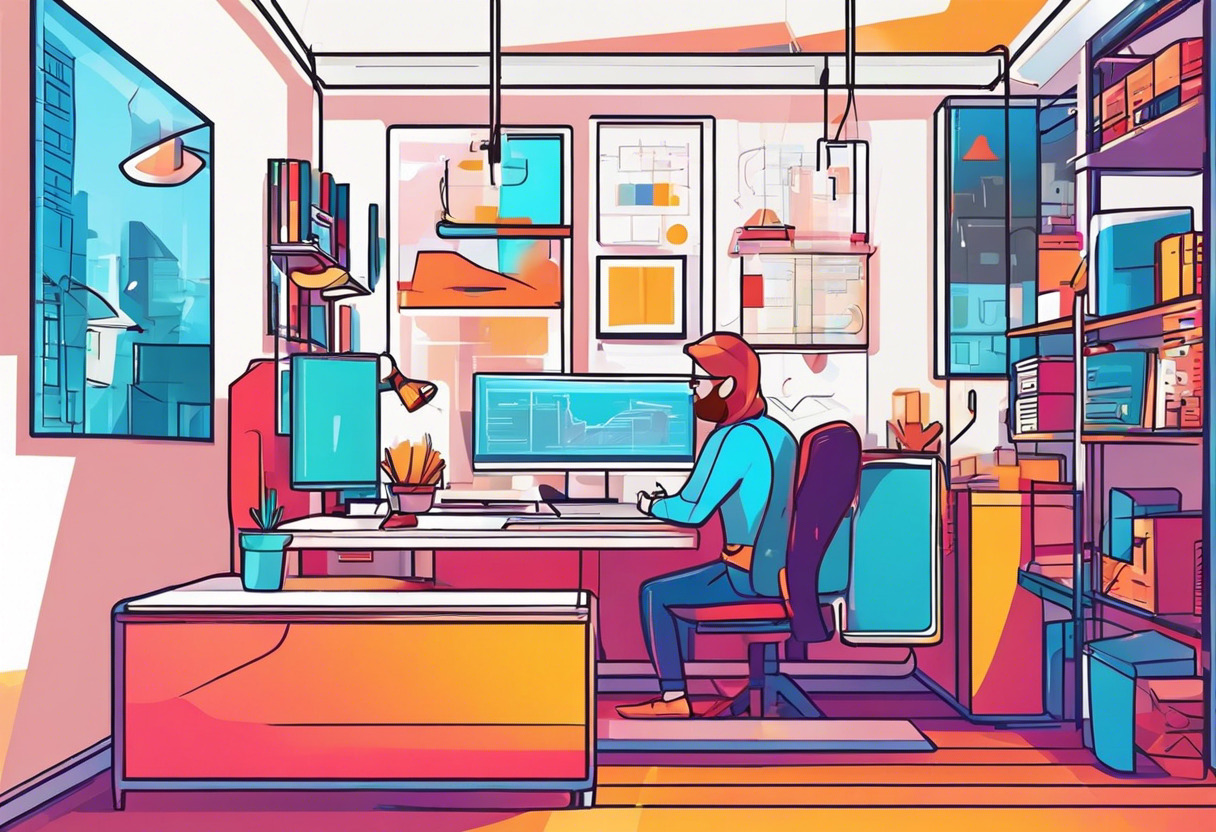
Pros of Unreal Engine
- Supports a wide range of platforms including desktop, mobile, console, and VR
- Includes a level editor, UnrealEd, for on-the-fly geometry operations
- Allows users to sell their creations on the UE Marketplace
Cons of Unreal Engine
- Charges a 5% royalty for revenues over USD 1 million
- Complex for novice developers to master
- Primarily suited for large-scale productions
Blender or Unreal Engine: The Decisive Conclusion
In the high-stakes realm of AR/VR creation and 3D modelling, the choice between Blender and Unreal Engine is pivotal. Let’s eliminate any ambiguity.
Open-Source Advocates
For developers who thrive in the community-backed, open-source space, Blender has your name written all over it. Gorgeously free and community-supported, it provides broad toolset including 3D modelling, texturing, rigging, simulation, and animation. Its extensive coding roots in C, C++, and Python offer
- versatility
- user-friendliness
- power
to boot. 
Full-Blown Game Devs & Modders
If your world gravitates around game development and modding, Unreal Engine is your undeniable choice. UE’s stronghold is its game-centric toolset anchored by seamless C++ development and a level editor (UnrealEd) that supports operations like real-time constructive solid geometry. Endorse it’s
- broad platform support
- peerless game development tools
- active modding community
and prepare for a colossal ride. 
Education Sector
Looking to shape the next generation of tech savants in the education sector? Embrace Unreal Engine. Its free access for schools and universities, coupled with its easy-to-follow basic project templates, serve as a fertile learning ground for students embarking on their journey in game development and 3D graphics.

High-Stakes Commercial Developers
Commercial developers whose products are projected to exceed the USD 1 million revenue threshold must carefully consider Unreal Engine. Its 5% royalty charge only applies after this threshold, offering a suitable choice for large-scale, commercially viable projects.

Evenly poised, Blender’s open-source spirit and Unreal Engine’s game-centered forte provides a compelling argument. Developers, choose Blender if open-source 3D modelling is your playground. Gamers, modders and higher-education institutions – choose Unreal Engine. Avid commercial developers, tread the Unreal Engine path for commercially scalable solutions. To simplify, Blender is the child of community ingenuity, while Unreal Engine is the seasoned warrior of the gaming arena.
Tiffany Brise
Content writer @ Aircada, patiently awaiting a consumer AR headset that doesn’t suck.



